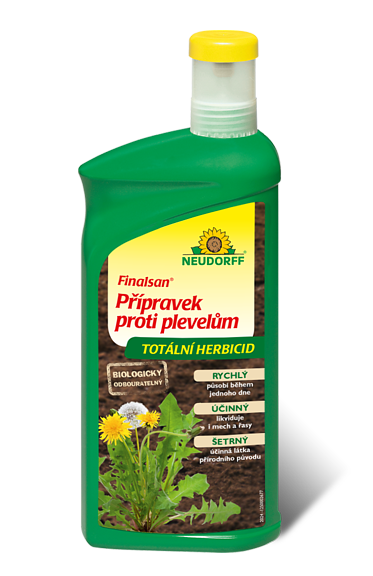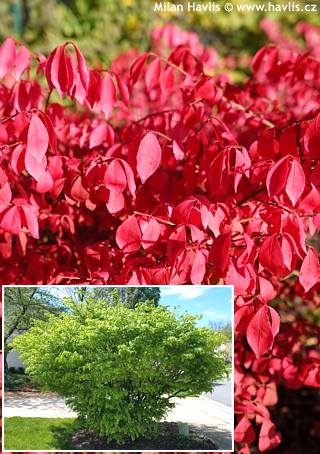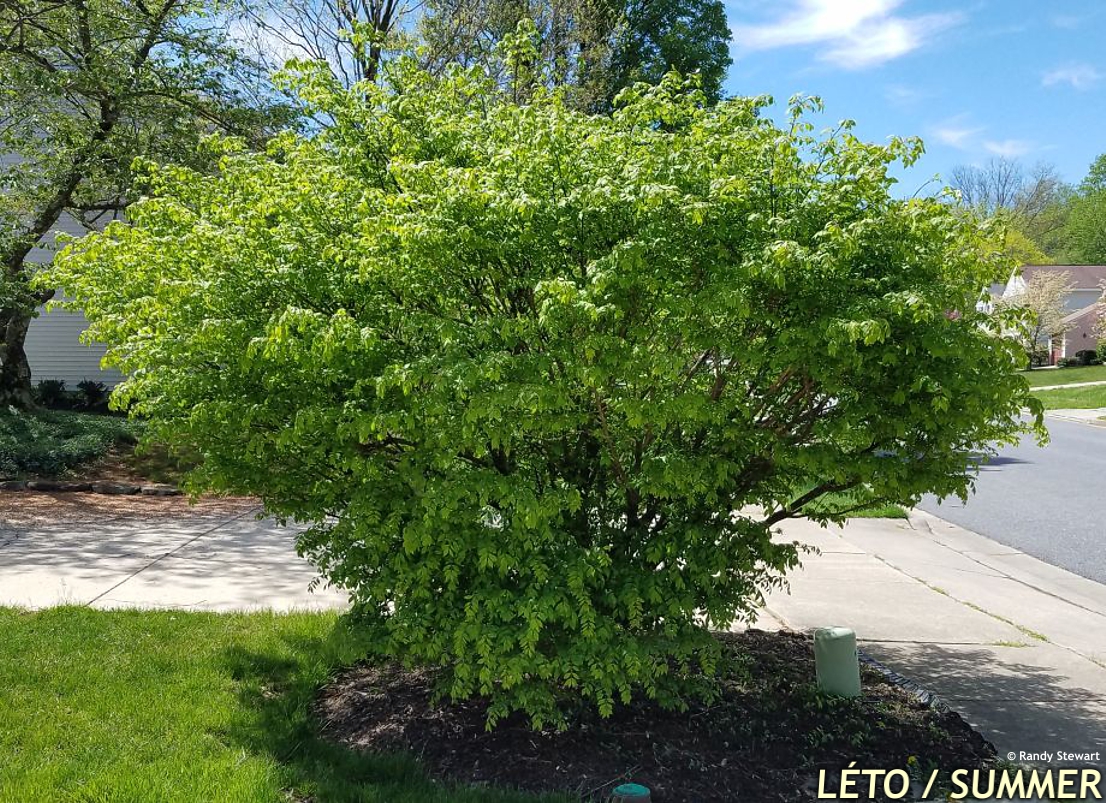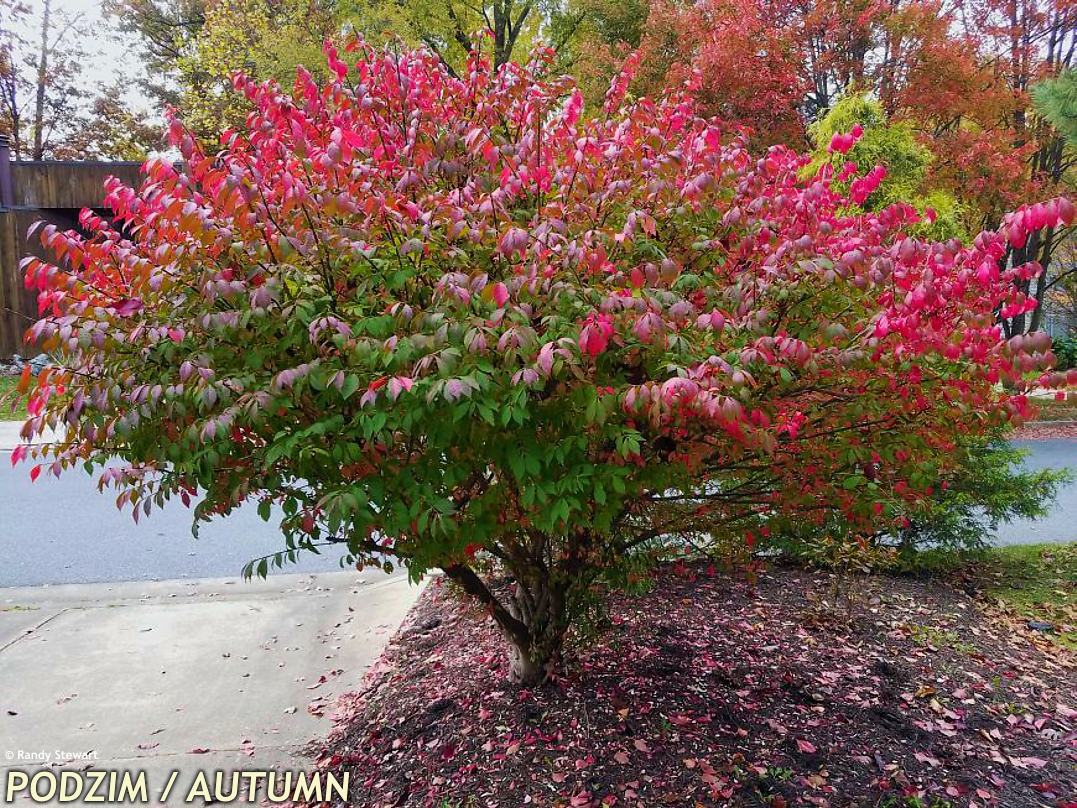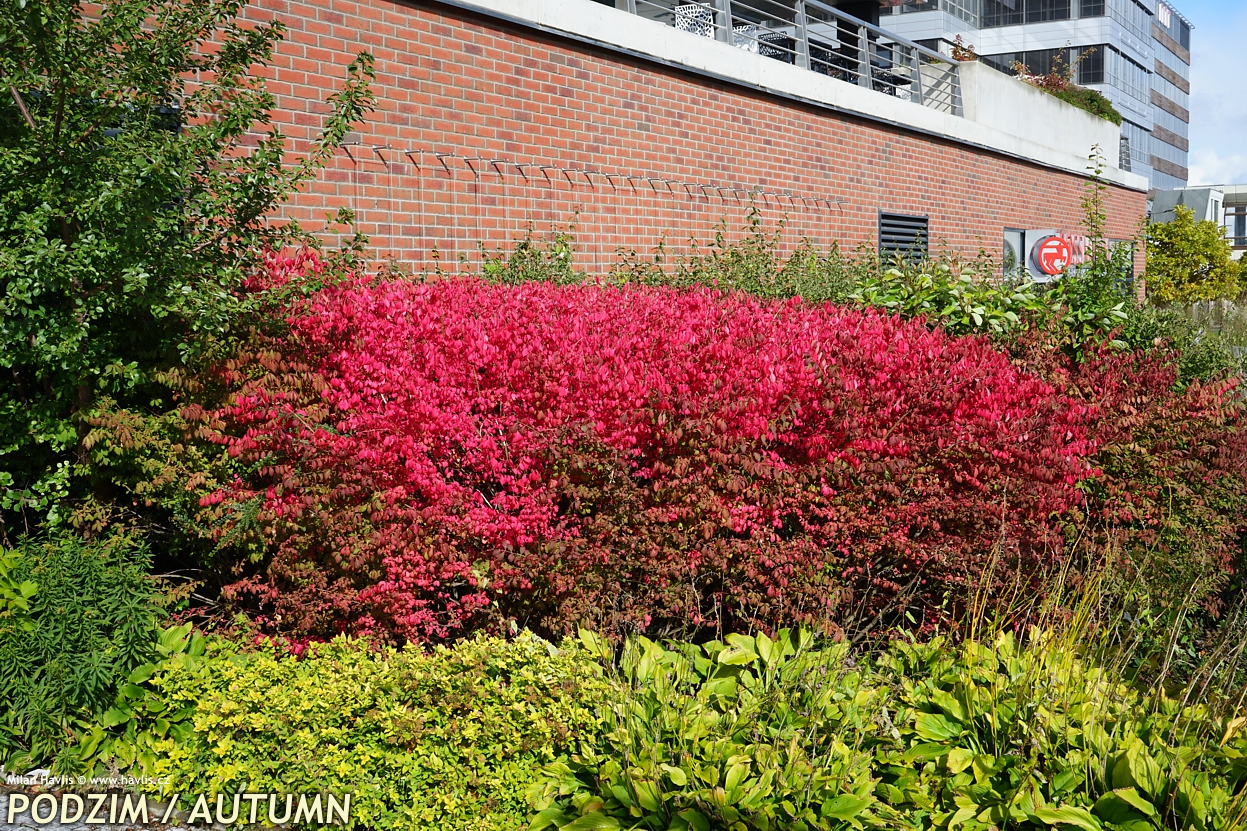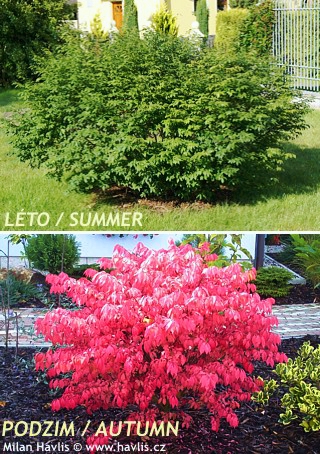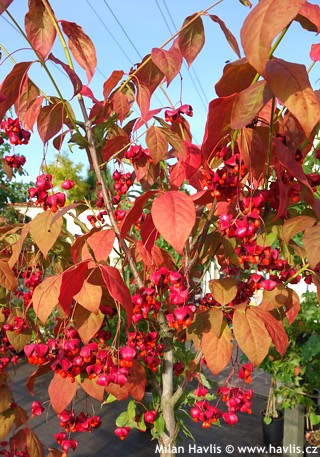Euonymus alatus 'COMPACTUS' winged euonymus, burning bush
Euonymus
Winged spindle is a deciduous shrub native to central and northern China, Japan, and Korea. It is characterized by short cork wings which appear on the branches of even young shrubs. They are so conspicuous that they resemble the branches of sweet gum or cork oak. They are also highly valued in Chinese and Korean medicine as they contain high amount of chemicals which are used to fight cancer, hyperglycemia, and diabetes.
Compactus is a slightly smaller variety of winged spindle with a very dense habit awarded AGM (Award of Garden Merit) by RHS (Royal Horticultural Society). You can recognize it at first glance by its smooth branches and trunk because Compactus spindle does not have such prominent 4-sided branches as the species, but the density of branching and foliage is several times higher. Its deciduous leaves are small, ovate to broadly elliptic, bright green in spring and turn a vibrant shade of crimson red with the arrival of the first cooler days of autumn – sometimes as early as late August. The leaves are arranged along the twigs like ash tree compound foliage. Inconspicuous flowers appear in late spring and, if pollinated, the plant is covered with fiery orange tiny fruits in autumn. They are not edible or poisonous.
Winged spindle is a reliable and undemanding shrub that, due to its durability, is often found in low-maintenance public greenery. Its size and natural shape without pruning will stand out especially in parks and arboretums where it has enough space. It is very popular among bonsai-makers but in the garden we recommend no pruning at all. Because left to its own devices, with age it will grow into a broadly funnel-shaped form of an impressive overflowing fountain. It grows about 20-30 cm per year.
It is not picky about soil type or pH, it can even cope with compacted ground that can either get completely dry or temporarily waterlogged. For the best autumn colour place it in full sun or partial shade as it will lose its nice shape in deep shade where it will not turn red in autumn. Pruning is possible from late winter to early spring before leaves emerge. Hardiness is commonly guaranteed to -34 °C, however, tests in Canada proved it hardy down to -40 °C.
Last update: 20-03-2007; 07-12-2023
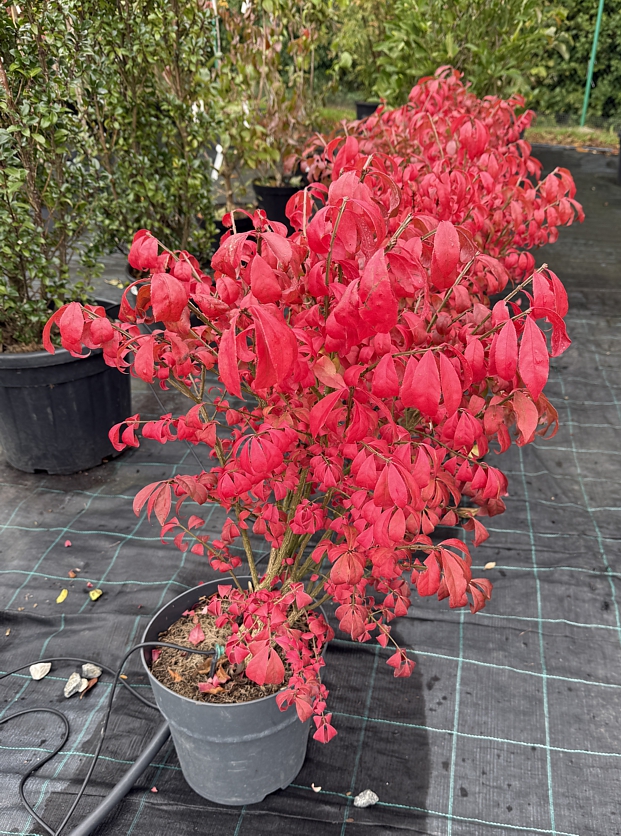
1 557 Kè
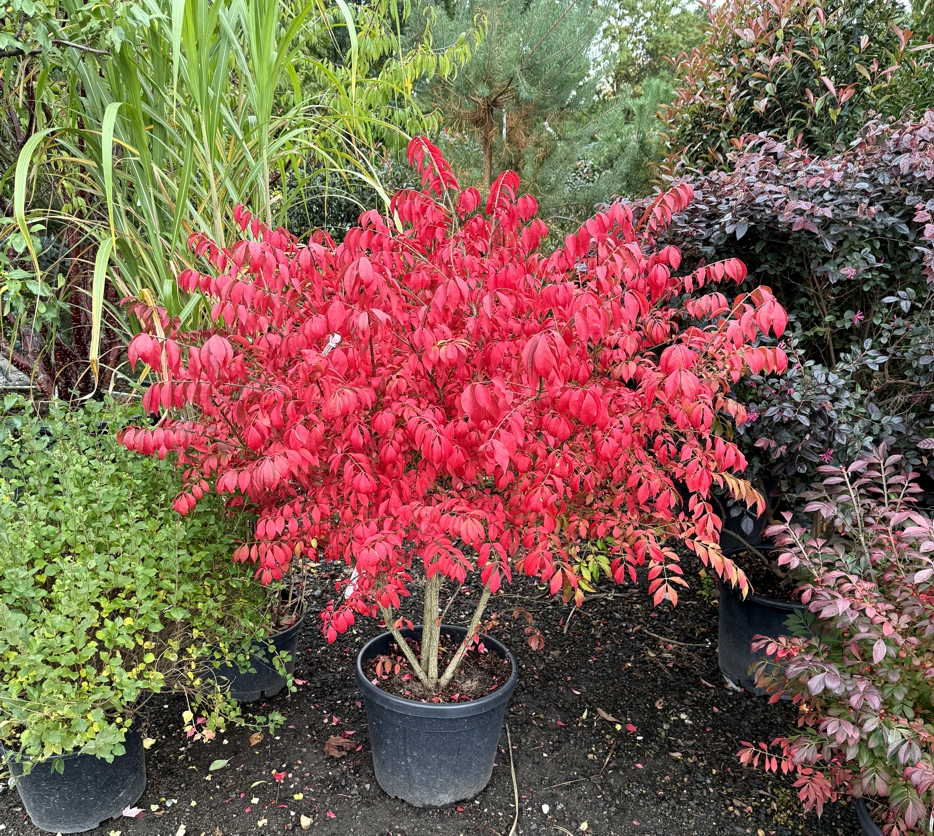
7 092 Kè
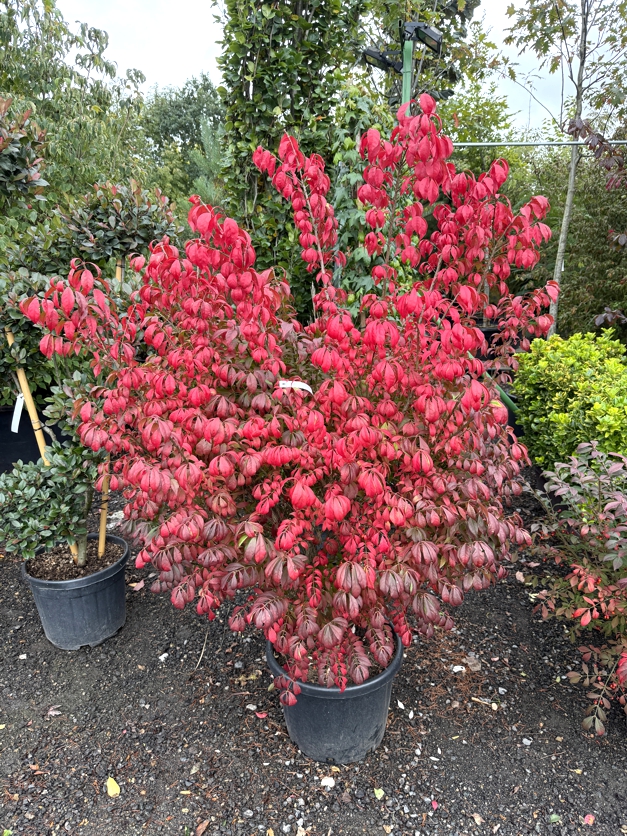
9 117 Kè
Goods are shipped all over Europe. For Russia and U.K. and for further details please read about SHIPPING OPTIONS HERE.
Are you interested in a serious discount for orders NOV-FEB? Check your options here.
THE PRICES INCLUDE VAT of 15%. For quick conversion you can use 1 CZK = approx. 0.04 EUR
- STANDARD QUALITY - Plants of this group are 1st class quality with number of branches and overall density adequate to their size and age, considering they were container grown.
- DE LUXE QUALITY - This label guarantees a luxurious quality of manually selected plants that, compared to their height and age, are exceptionally dense and beautiful.
- EXTRA - These plants are usually mature and bigger specimens with exceptional overall appearance.
- STANDARD (as described in the plant form) means a tree with a trunk of 190-210 cm and a crown at the top, unless specified differently. The commercial size for trees is their girth measured in the height of 1m from ground.
- HOBBY - These plants are of the same quality as our standard-quality plants but younger and therefore cheaper.
- SHRUB - a woody plant with branches growing bushy from the ground level.
- HALF-STANDARD or MINI-STANDARD - a small tree with shorter trunk, its size is usually specified.
- FEATHERED - These are trees with branches growing already from the base of the trunk and up along the stem.
- GRASSES and PERENNIALS - Sizes given usually read the diameter of the pot or the clump, as specified.






























